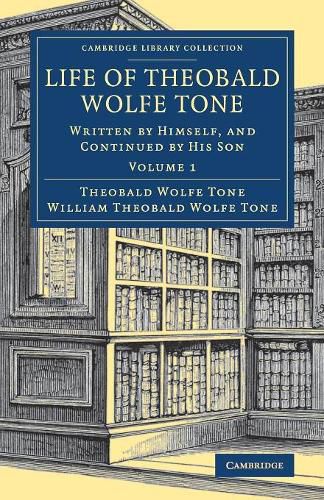Readings Newsletter
Become a Readings Member to make your shopping experience even easier.
Sign in or sign up for free!
You’re not far away from qualifying for FREE standard shipping within Australia
You’ve qualified for FREE standard shipping within Australia
The cart is loading…






Theobald Wolfe Tone (1763-98) is remembered as a firebrand revolutionary who was the founding father of Irish nationalism, and who committed suicide on the eve of his planned execution in Dublin for treason. This two-volume autobiography, completed after his death by his son, was published in Washington in 1826. It contains accounts of his adventurous life and his key role in the foundation of the Society of United Irishmen in 1791, as well as extracts from his journals, letters, and political works. Volume 1 describes his life up to the point at which he travelled from America to France and joined the French army, including his education at Trinity College Dublin, his legal training at the Middle Temple (both of which suggested a future as part of the Anglo-Irish Establishment), and his early career as a political writer and proponent of equal rights for Catholics in Ireland.
$9.00 standard shipping within Australia
FREE standard shipping within Australia for orders over $100.00
Express & International shipping calculated at checkout
Theobald Wolfe Tone (1763-98) is remembered as a firebrand revolutionary who was the founding father of Irish nationalism, and who committed suicide on the eve of his planned execution in Dublin for treason. This two-volume autobiography, completed after his death by his son, was published in Washington in 1826. It contains accounts of his adventurous life and his key role in the foundation of the Society of United Irishmen in 1791, as well as extracts from his journals, letters, and political works. Volume 1 describes his life up to the point at which he travelled from America to France and joined the French army, including his education at Trinity College Dublin, his legal training at the Middle Temple (both of which suggested a future as part of the Anglo-Irish Establishment), and his early career as a political writer and proponent of equal rights for Catholics in Ireland.